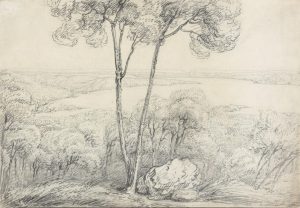One of the prejudices I struggle with are judgements about generation. Perhaps it is the stage of my life. I am in the thick of it; a cross-point between family relations that are very young and very old. My partner and I are looking after one child who at primary school and nurturing a young adult daughter. In the other direction our eyes are on elderly parents in their eighty. We have already experienced the loss of one parent from disease in their senior years. So it is understandable to make generalisations based on age.
Talk of generations, however, I find is over-generalising. As if because a person was born at a certain year, they must have the same outlook in that same cohort. If you think about it for one minute, you realise this is utter nonsense, and yet the journalistic-style books on generational shifts sell well. One of the important lessons you learn as a discipline-trained historian is don’t assume an era can be reduced to one set of behaviours or codes. You look for subtle movements of changes, conflict, and shifts against the tide.
And yet, what I see – or want to see — is that, the younger generations, Y, X, and Z (what happens after “Z”?), have little patience with things historical. My youngest daughter thinks I am boring and stupid because I say too much about things in the past. My eldest has some sympathy, but my history-making is just not cool. “Too much detail!” they say. On the other hand, my post-WWII generation parents speak well of history, but still don’t understand and don’t really want to understand – that is, to understand at a level of engagement.
I have thought of about this. Most of my clients were the generation of young adults in the immediate post-WWII years. If you are involved in a local history group you know that the medium age is usually over 60. The largest portion of this generation never went to college or university. Often they sacrificed themselves in their menial jobs to give their children a higher education. The twist in the history is that this generation don’t often have the patience with their children’s literary engagement simply because they have never had the luxury to be exposed to that level of reading.
Nevertheless, the literary tastes for history, as well as other historical engagements, are more complex and developing than the simple generalization provides. As historians we know that people who lived in the same era were all very different, shaped in the judgements other than age; in categories of class, gender, race or ethnicity, politics, and nationhood (“Australian”) or statehood (“Queenslander”).
There is a pertinent point here for the professional historian. We need to think inter-generationally in our work. Age still does have relevance, among everything else. The demand in the market is with the older generations. Sometimes it is really frustrating to work with older people who have just discovered “history.” You have to remind yourself of the naturalness in the process. Most people don’t care about history until much later in life when they starting to think about their own mortality.
There are professional historians who come to the job as a second career in semi-retirement. I don’t begrudge those life choices, but I am one among the historians for whom the discovery of history was the passion of youth. I started my undergraduate years, at the age of 23, with the sole intention of studying history. There were other motivations for doing history, and other disciplines were sort after, but history was always front and centre. We gave our lives to the discipline even when we had to be employed in other occupations. This is what gives me hope for professional history. Even though less young people have been enrolling in degrees with history majors or as history postgraduate qualifications, the pathway is there for the next generation of professional historians in Queensland.
This is why I have been arguing so strongly with my colleagues about the urgent need to ensure there are transitional mechanisms for young history graduates into the profession. We are leaving too much to chance by not being pro-active in the professional training of the next generation. Is it not time to take serious, to the point of engagement, our generational responsibility as heirs of the profession. Our value in history is what we take from the older generation and give back to those who will be writing the history of what we did and did not do.

